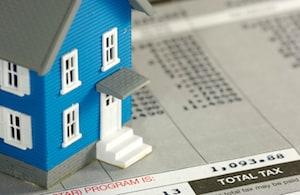When to File for Homestead?

We Are Often Asked – When Do You File for a Homestead?
Individuals must apply for exemptions with their county Property Appraiser. The Property Appraiser Office accepts Homestead Exemption applications by March 1 of the qualifying year. For example, the Property Appraisers Office deadline to accept 2017 applications was on March 1, 2017. If you missed this year’s filing you can submit for 2018 consideration.
A homestead exemption may provide some homeowners with a significant tax savings. Florida entitles most homeowners a standard $25,000 exemption on the assessed value of the qualified residential property. If you received the standard Homestead Exemption you may be qualified to receive an additional exemption up to $25,000, which would apply to taxable values greater than $50,000 and up to $75,000, for all tax levies except school district levies.
Per Florida Statutes 196.015 and 196.031, Homestead exemptions are granted only to permanent Florida residents. The property must be owned by the individual (have legal title or beneficial title in equity) and it must be your permanent residence on January 1 to qualify.
The state of Florida only allows Individual homeowners to claim one Florida Homestead Exemption and Florida homeowners may not claim any other residency exemptions in any another state.
It is important to note that Homestead Tax Exemptions are not transferable. If you had a Homestead Tax Exemption on your prior property, you must file a new Homestead Tax Exemption for your new property. In Florida, this is called Portability. Florida residents, allowed portability, may transfer part of their Save Our Homes tax saving to their new Florida residency.
If you have any questions regarding Homesteads, including submitting for an exemption or you have been denied a homestead exemption, or have questions regarding Portability, contact KALIS, KLEIMAN & WOLFE, in Broward County, Florida today at (954) 791-0477.





